
For Lincoln, born this day in 1809
To be born an American, or to become an American, you need only know and understand four things that we have written down. Our founding document, The Declaration of Independence. Our agreement with ourselves and our government that specifies and protects the self-evident truths and freedoms of the Declaration, The Constitution. Our national motto: “In God we trust.” And our credo, “The Gettysburg Address.”
A credo is a short and straightforward statement of beliefs or principles. A credo has no fixed length but lies somewhere between a motto and a manifesto. The most widely known traditional credo would be “The Apostles Creed.”
Although it is not often thought of as such, Lincoln’s brief oration at Gettysburg at noon on that long ago November day is, in all its elements, our national credo. Although shaped as prose fit to be cut, as it has been, into stone, The Gettysburg Address is also a lyrical poem as polished as a crystal prism. Through it, all that we had been up until that day midway through our most terrible conflict passed and was transformed into the multifaceted nation we have become today. And it is still not finished with us, nor we with it.
The Address shows us first how we came into existence as “the last best hope of Earth.” It echoes the opening refrain of the Declaration’s notes of liberty and equality. It reminds us of our original goals of “life, liberty, and the pursuit of happiness;” goals to which our founding fathers pledged their “lives, fortunes, and sacred honor.” It implies that all generations of Americans must, if the nation is to endure, pledge the same.
Four score and seven years ago our fathers brought forth on this continent a new nation, conceived in liberty, and dedicated to the proposition that all men are created equal.
The poem then brings the credo into the present. Not just the present moment of November 19, 1863, but all the present moments that came after right up to this very day in November in 2013. Then the argument between Americans had become so pitched that civil war between the contending factions had torn the nation asunder. We have come close to similar passes since then several times, but have — remembering “the better angels of our nature” — always turned aside and found a way to move forward together as a great nation of a greater people. Now may be another such moment; another such turning. Lincoln could not know our moment, but in his credo he indicates his belief that the test of his moment will be passed and that the nation will long endure. He also knows the cost of that test for those who “gave their lives that that nation might live.”
Now we are engaged in a great civil war, testing whether that nation, or any nation, so conceived and so dedicated, can long endure. We are met on a great battle-field of that war. We have come to dedicate a portion of that field, as a final resting place for those who here gave their lives that that nation might live. It is altogether fitting and proper that we should do this.
From that moment in that long ago November, Lincoln’s credo casts a cold eye on the ultimate costs of liberty whenever men determine that liberty, for themselves and their posterity, is worth whatever sacrifice is asked of them. Out of that vision he tells us what the duty of all future generations of Americans must be.
In the closing of the Address, Lincoln is at once a President, a poet, a seer, and an American. As such, he closes the credo to which all future Americans must cleave. The credo requires us to be constantly renewing the work of liberty. The credo tells us that we — if we are to bear true faith and allegiance to all those who have built, stone by stone, poem by poem, word by word, and life by life, the city on the hill that is America — must always be dedicated to the unfinished work that is always before us. The credo requires that we “highly resolve” to leave our nation in a greater state of liberty than we found it. And to leave our Union entire and intact as “the last best hope of Earth.”
The most successful revolution in history was not the Russian Revolution or the Chinese Revolution. It was the American Revolution. It began more than two centuries ago and it continues to this day. It is not over yet. This is its credo:
But, in a larger sense, we can not dedicate, we can not consecrate, we can not hallow this ground. The brave men, living and dead, who struggled here, have consecrated it, far above our poor power to add or detract. The world will little note, nor long remember what we say here, but it can never forget what they did here. It is for us the living, rather, to be dedicated here to the unfinished work which they who fought here have thus far so nobly advanced. It is rather for us to be here dedicated to the great task remaining before us—that from these honored dead we take increased devotion to that cause for which they gave the last full measure of devotion—that we here highly resolve that these dead shall not have died in vain—that this nation, under God, shall have a new birth of freedom—and that government of the people, by the people, for the people, shall not perish from the earth.




![That Was the Whopper Weekend That Was [Illustrated] welcometohell](https://americandigest.org/wp/wp-content/uploads/2021/05/welcometohell-150x150.jpg)
![Allen Ginsberg: The Interview, <strong> ➡ 1972 ⬅ </strong> [Republished by unpopular demand] ginsbergnirvana](https://americandigest.org/wp/wp-content/uploads/2022/05/ginsbergnirvana-150x150.jpg)
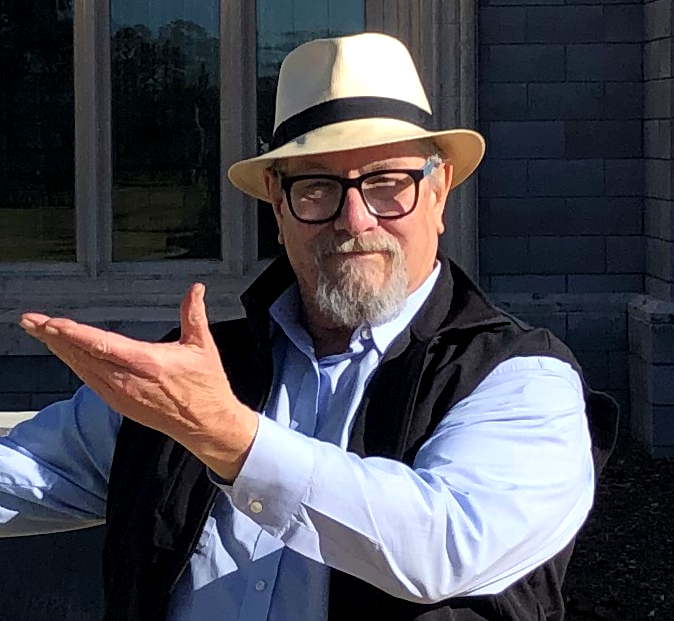 Gerard Van der Leun
Gerard Van der Leun








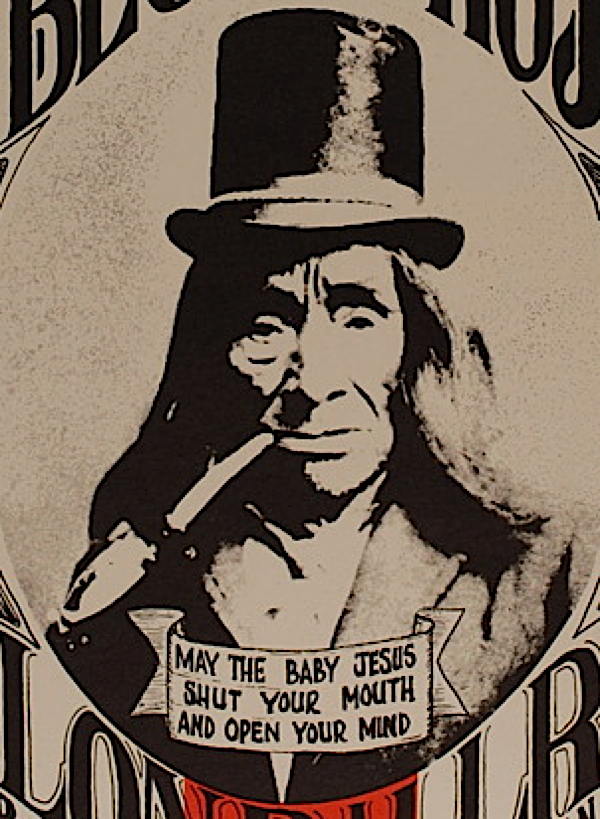

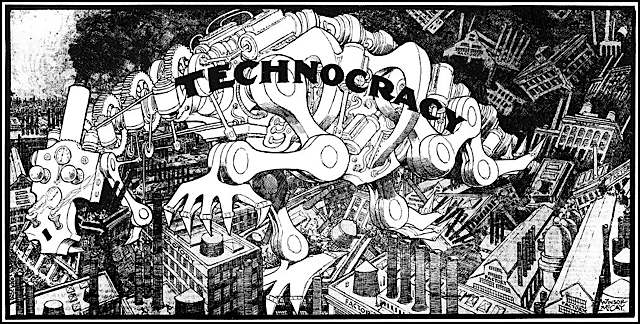





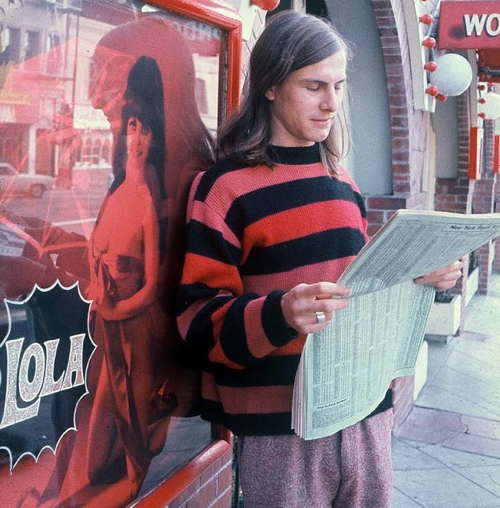




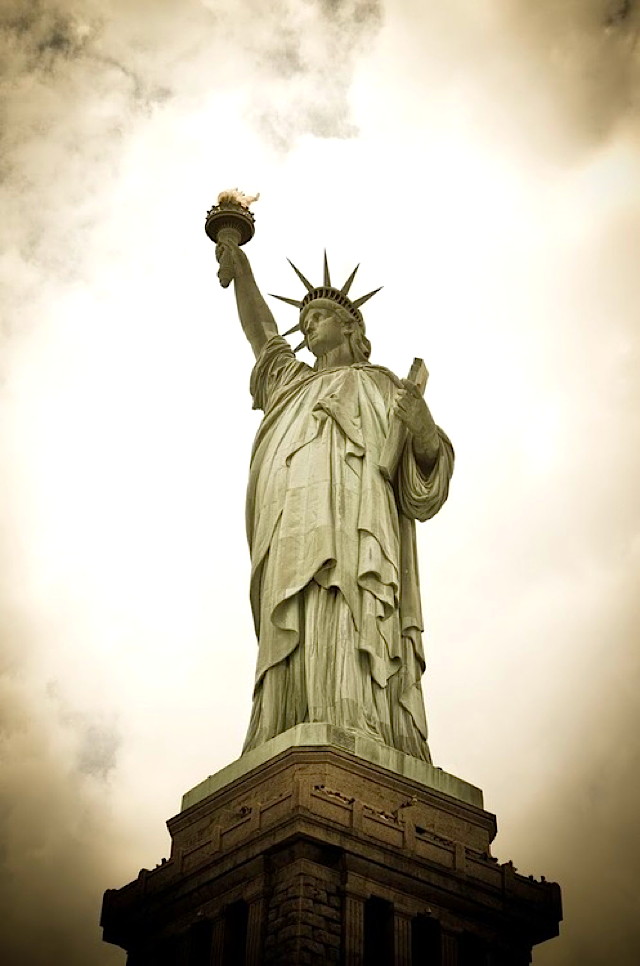


Comments on this entry are closed.
Very fitting and apt to see this again in these troubling times, where we see a former president fomenting sedition.
A couple of weeks ago, I counted the number of steps from the Reflecting Pool to the main chamber of the Lincoln Memorial on The Mall in Washington, DC. There were 87, four score and seven.
Even American Digest hits a bump once in a while. Honest Abe made decisions that killed 700,000+ Black and White American soldiers and civilians and also killed the idea of State Sovereignty. His proclamation, which had no legal grounds, was a tactic learned from Karl Marx and was nothing more that an attempt to produce a “workers uprising”.
The idea that Lincoln “learned” anything from Karl Marx is, at best, a vast fatburg of conspiracy notions held up by the slimmest of reeds.
There was exactly one “exchange” of letters between Marx and the Lincoln administration and on the administration side the letter was from Lincoln’s ambassador to Marx. To wit:
“Ambassador Adams Replies
Legation of the United States
London, 28th January, 1865
Sir:
I am directed to inform you that the address of the Central Council of your Association, which was duly transmitted through this Legation to the President of the United [States], has been received by him.
So far as the sentiments expressed by it are personal, they are accepted by him with a sincere and anxious desire that he may be able to prove himself not unworthy of the confidence which has been recently extended to him by his fellow citizens and by so many of the friends of humanity and progress throughout the world.
The Government of the United States has a clear consciousness that its policy neither is nor could be reactionary, but at the same time it adheres to the course which it adopted at the beginning, of abstaining everywhere from propagandism and unlawful intervention. It strives to do equal and exact justice to all states and to all men and it relies upon the beneficial results of that effort for support at home and for respect and good will throughout the world.
Nations do not exist for themselves alone, but to promote the welfare and happiness of mankind by benevolent intercourse and example. It is in this relation that the United States regard their cause in the present conflict with slavery, maintaining insurgence as the cause of human nature, and they derive new encouragements to persevere from the testimony of the workingmen of Europe that the national attitude is favored with their enlightened approval and earnest sympathies.
I have the honor to be, sir, your obedient servant,
Charles Francis Adams”
===
“Oh, the humanity…”
Just wondering if it’s time to roll the stink bomb of the Corwin Amendment into these comments?
(With a Rebel Yell, of course…)
Any comment on the 700,000+ dead Black and White Americans……………….other than the usual: “The South started the Civil War, and it could never happen again.”
Sorry, not into educating those who, being shown to be in error on one point, immediately default to the other point to bolster their ruined argument.
You never addressed the “other” point. Beginning to think some trolling taking place…………… Simple question: How do you feel about Lincoln making decisions that killed 700,000+ Black and White American soldiers and civilians? Pretty simple. My initial comment was that American Digest does an outstanding job, but sometimes they/we (except perhaps you?) screw up.
The definition of a ‘civil’ war is two groups fighting for control of the government. America has never had a civil war. The South had its own government and was not trying to gain control of the yankee government.
@ H. Jones
Every American worth their freedom wishes none had died for the sake of the eventual
freeing of American’s slaves.
All or some regret that ~700,000 died so that States’ Rights would be considered a higher priority than Human Rights.
At worst and best, law was broken and justice was served.
The flood of blood was said to expiate the sin of slavery. Go, sin no more. Humanity as a whole has betrayed the enslaved Tibetan and North Korean peoples. Will that sin be expiated by fire next time?
Let that be a lesson. Some wounds never fully heal, some scars go too deep. The Balkans have 1100 years of those to bear. We have been blessed to have so few. Stick around long enough, and time will catch up to us.
before lincoln: the united states are…
after lincoln: the united states is
Lincoln was a cold-blooded killer and a tyrant, and would have been executed for treason had the South won. It was a war of northern aggression, started because the South had the audacity to reject the Morrill Tariff. But, history is written by the victors, no exceptions.
When I learned, and understood, the ramifications of that which rabbit tobacco wrote it was the end of the end for me regarding american politics, and the downfall of the country was no longer in question.
Booth was 4 years too late.
One of the interesting omissions that has occurred with the re-writing of American History is that had Lincoln lived, the freed slaves were actually going to be re-located back into slavery in Africa or South America. As I did deeper into this twisted mind it becomes harder and harder not to refer to him as America’s first communist.
H. L. Mencken summed up the Gettysburg Address pretty differently.
https://www.nps.gov/pete/planyourvisit/upload/d2-site-21-gettysburg-address-poplar-grove.pdf
And once again I point out that the occasion of “Four Score and Seven Years Ago” was that of a Confederacy breaking away from a Union.
Rather hypocritical to laud such an occasion while you are stomping on other people’s efforts to gain independence.